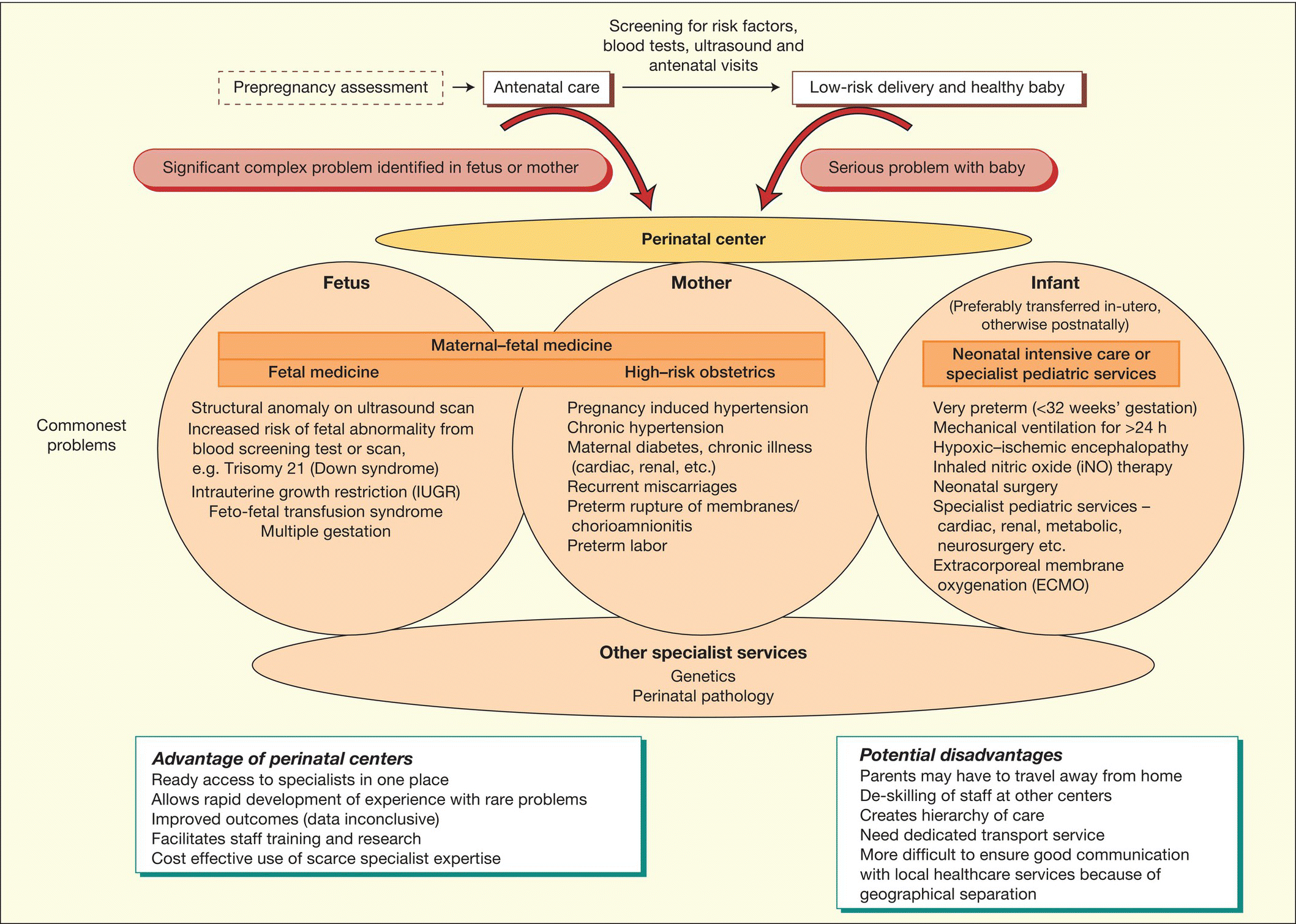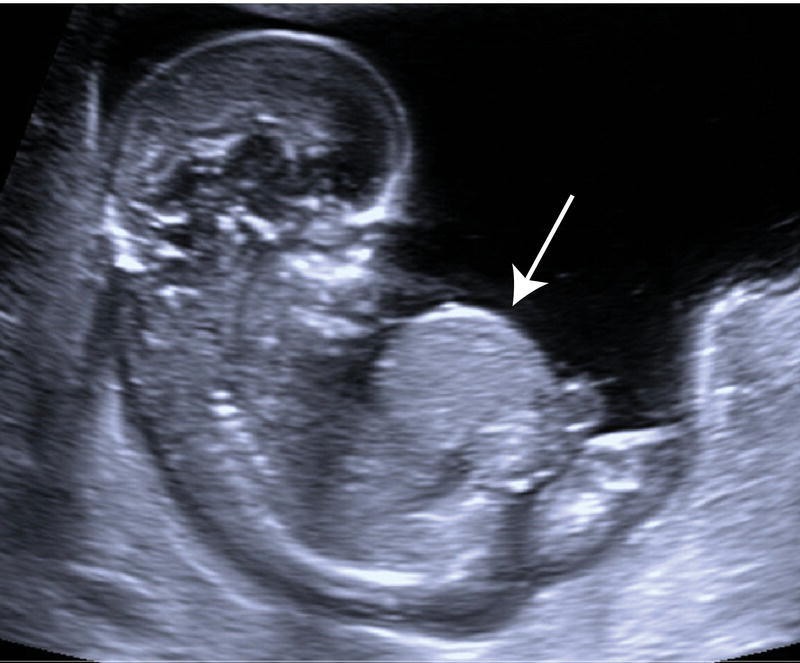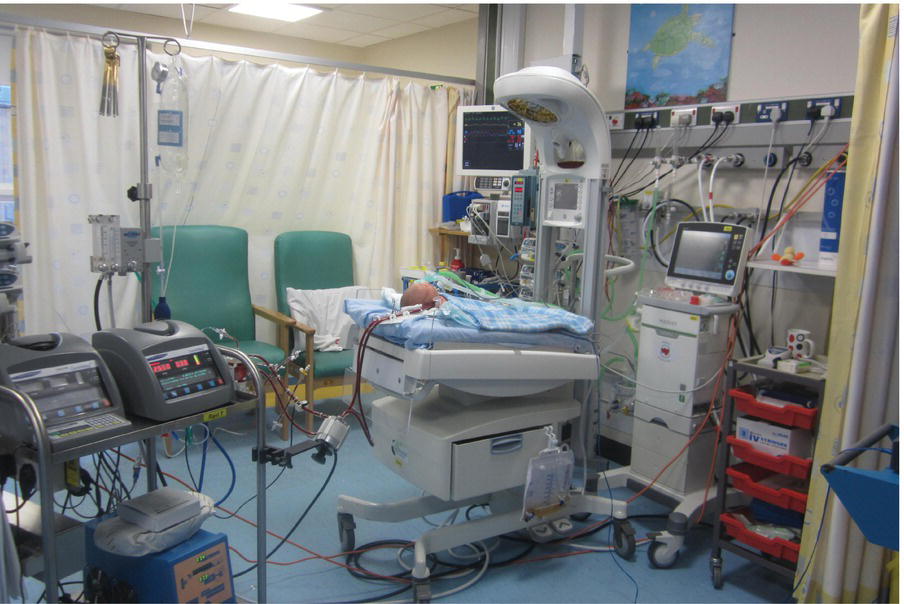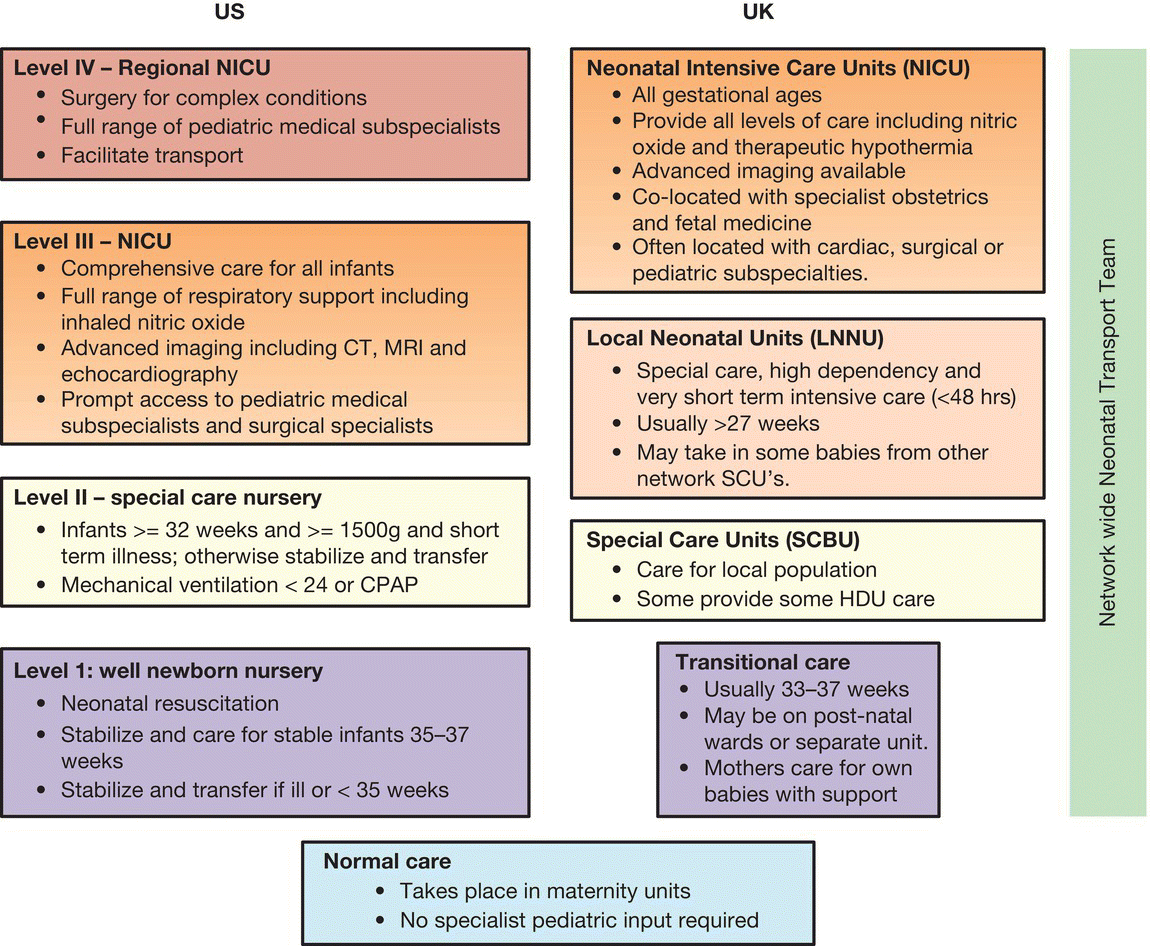3
Perinatal medicine
Perinatal medicine aims to provide a ‘seamless’ care pathway for the fetus and infant with complex problems from before and during pregnancy, through labor and delivery into the neonatal period. This requires expertise that is highly specialized, rapidly advancing and multidisciplinary. In many countries this involves close collaboration between specialists in maternal–fetal medicine, high-risk obstetrics, neonatology and pediatrics. Such care is usually provided centrally as a tertiary service, although some services are available locally or as ‘shared care’ (Fig. 3.1).

Fig. 3.1 Organization of tertiary perinatal care.
Neonatal involvement in perinatal care
An increasing number of conditions requiring specialist neonatal or pediatric care are recognized antenatally. This allows counseling (both obstetric and pediatric), multidisciplinary discussion and transfer, if necessary, to a perinatal center. Parents require discussion of complex information about their baby’s condition and management options, often on multiple occasions and with several healthcare professionals; these may include neonatologists, specialist pediatricians and pediatric surgeons. Interpretation of antenatal ultrasound scans may be difficult and defining prognosis may be problematic. This is facilitated by multidisciplinary team (MDT) meetings of relevant specialists, which may include fetal medicine, obstetrics, genetics, neonatology and pediatric surgery. Other pediatric specialists such as those involved in urology, neurosurgery, otolaryngology (ENT), orthopedics and pediatric medical specialties may also be involved.

Fig. 3.2 Significant fetal abnormalities detected on prenatal ultrasound screening, such as the omphalocele (arrow) shown , will need to be assessed in a perinatal center to allow review by a fetal medicine specialist, neonatologist and pediatric surgeon, counseling with parents and planning for delivery and management.
However, specialist assessment and counseling need to be prompt to allow parents to make informed choices, including termination of pregnancy, in order to keep within national legal boundaries.
Information about less severe problems identified antenatally also needs to be communicated to the neonatology and specialist pediatric teams so that appropriate assessment and follow-up are arranged postnatally.

Fig. 3.3 An infant on extracorporeal membrane oxygenation (ECMO), which is provided at only a relatively small number of specialist centers.
Neonatal Networks
The different levels of care required by newborn infants are shown in Fig 3.4. As it is not possible or efficient to provide all levels of care in every hospital, neonatal or perinatal (including maternity) networks working across hospital boundaries have been developed. Their aim is to improve care for mother and baby by facilitating collaborative working, unified protocols and minimizing geographic variations in care.

Fig. 3.4 Levels of neonatal care.